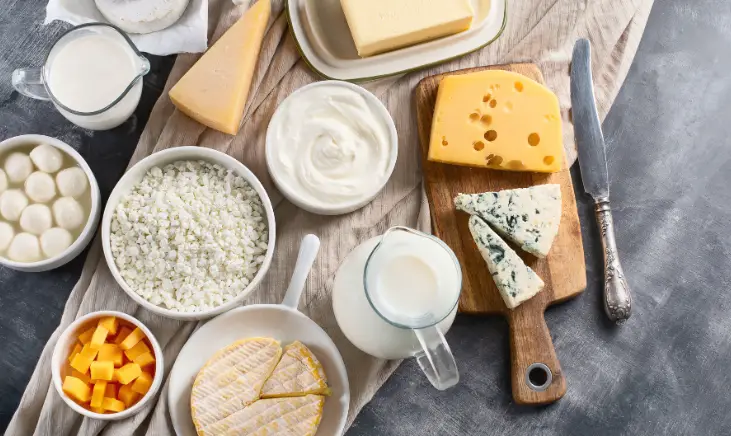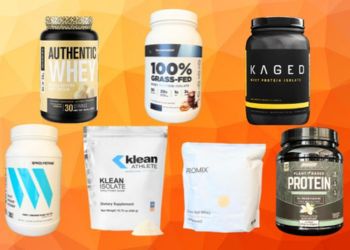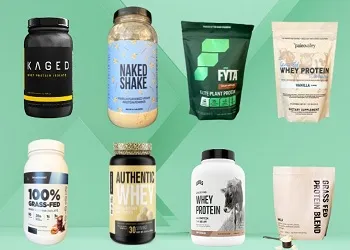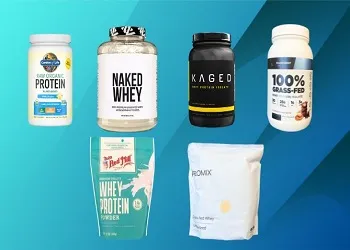When you hear the word “electrolytes,” what do you think of? Most people think of sports drinks and electrolyte powders.
However, these supplements aren’t the only way to get enough electrolytes daily. Many common foods contain electrolytes and help you meet your daily needs for these minerals.
In this article, we’ll break down what electrolytes are, why they’re important, and the best foods with electrolytes so you can maintain optimal electrolyte levels and ensure you’re giving your body what it needs.
Table of Contents
Short Summary
- Electrolytes are minerals that play a key role in hydration and other processes in the body
- If you lose large amounts of electrolytes, it is important to replenish them with food, electrolyte drinks, and/or supplements
- Foods high in electrolytes can help you meet your baseline needs, replace lost electrolytes, and maintain a healthy diet.
What Are Electrolytes?
While the term electrolytes seems like it may be something fancy, electrolytes is simply a term that encompasses some common minerals.
Important electrolytes include:
- Sodium
- Potassium
- Phosphorus
- Calcium
- Chloride
- Magnesium
Why Do You Need Electrolytes?
Electrolytes play a key role in hydration levels and balance. This is the role we’ll discuss in detail in this article.
Here are some additional functions of electrolytes:
- Maintain the pH level of our bodies
- Move nutrients throughout our bodies
- Play a key role in nerve and muscle function, specifically in the heart and brain
How Many Electrolytes Do You Need?
Our daily needs for electrolytes are less about how many total electrolytes we consume, and more about our intake of each specific mineral.
The recommended daily intakes are:
- Sodium: 1500 mg/day with no more than 2300 mg/day
- Potassium: 3400 mg/day for men, 2600 mg/day for women
- Phosphorus: 700 mg/day
- Calcium: 1000 mg/day for adults under 70, 1200 mg/day for adults over 70
- Chloride: 2300 mg/day
- Magnesium: 420 mg/day for men, 320 mg/day for women
What is Electrolyte Imbalance?
Our bodies maintain a delicate balance of many things, electrolyte levels included. At times, electrolyte levels can be too high or too low. This is often directly related to our hydration status. Drinking excess water dilutes our electrolytes, whereas a lack of water concentrates them.
Exercise, especially very intense workouts, can cause electrolyte imbalance. Other causes include vomiting, diarrhea, sweating from something other than strenuous exercise, liver or kidney problems, and some medications.
Common Signs of Electrolyte Imbalance
The signs of electrolyte imbalance are similar to those of dehydration because dehydration and electrolyte imbalance are often experienced together.
Signs include:
- Fatigue
- Headache
- Confusion
- Irregular heartbeat
- Muscle cramps
- Nausea
- Vomiting
- Diarrhea
How To Maintain Fluid and Electrolyte Balance
The best way to maintain an adequate balance of fluid and electrolytes is to ensure you consume enough daily. However, our fluid and electrolyte needs can fluctuate, so it’s essential to be mindful of things you are doing that may affect these needs.
When Do You Need to Replenish Electrolytes?
Especially intense exercise that causes heavy sweating, leads to fluid and electrolyte loss. Post-training is a critical time to increase your intake of both to maintain adequate balance.
In general, I recommend supplementing with electrolytes if the 3 Hs are present. These include:
- Hour-long sessions: If you are exercising for more than an hour
- Hot weather: If it’s hot and/or humid and you are exercising outdoors or in a space without air-conditioning
- High-intensity: If your workout is hard and you are pushing yourself at a high intensity
If your electrolyte imbalance is caused by vomiting and/or diarrhea, replacing the electrolytes you have lost is also needed. If you experience electrolyte imbalance from a medical condition, speak with your doctor about how to best maintain balance within your body.
You can replenish electrolytes by drinking a sports drink, using an electrolyte powder, or consuming foods high in electrolytes like those listed below.
As a registered dietitian, I encourage a food-first approach where you maximize your intake from food and only supplement to fill any remaining gaps.
Finally, some people think that you should replenish your electrolytes after a night of drinking to improve a hangover but it’s likely that it won’t be necessary since there isn’t a lot of solid research backing this idea.
20+ Best Foods with Electrolytes for a Balanced Diet
Sodium
Sodium is in many foods most people eat regularly. Restaurant foods, frozen foods, packaged foods, and deli meats all contain a lot of sodium.
Excess sodium can increase blood pressure, so some individuals may see health benefits from limiting sodium intake. If you have high blood pressure, you should limit your daily sodium intake.
Some healthier sodium foods include:
- Salt: Simply adding table salt to your meal can help you meet your daily sodium needs.
- Salted nuts: nuts provide our bodies with healthy fats, vitamins, and essential minerals. Picking a salted variety can help boost your electrolyte intake.
- Canned beans: Canned foods often contain sodium to help preserve them. Choosing canned beans with added salt will provide you with plant protein, fiber, and electrolytes.
- Pickles and olives: Both of these foods are jarred in water and salt for preservation, similar to canned beans.

Potassium
Rich sources of potassium include:
- Bananas
- Tomatoes
- Potatoes
- Avocados

Phosphorus
You can meet your daily phosphorus needs with the following:
- Meat, poultry, and fish
- Dairy and eggs
- Grains and legumes
- Nuts

Calcium
Calcium naturally occurs in:
- Dairy products, including milk, yogurt, and cheese
- Soy, including soy milk, tofu, and edamame
- Nuts, specifically almonds
- Leafy greens, including spinach and kale

Chloride
Chloride, like sodium, is naturally found in salty foods, including restaurant dishes, frozen, and packaged foods.
Healthy sources of chloride include:
- Seaweed
- Meat and fish
- Salted nuts
- Canned beans

Magnesium
Top magnesium sources include:
- Seeds, specifically pumpkin seeds
- Nuts, including almonds, cashews, and peanuts
- Greens, specifically spinach
- Beans, including black beans and kidney beans

Summary
Electrolyte minerals are essential for hydration, fluid balance, and other bodily functions. It’s important to replenish when we lose electrolytes through excessive sweating or another method.
While drinking sports drinks and taking electrolyte supplements are common ways to get electrolytes, many foods also contain electrolytes to help you ensure you are getting enough daily.
FAQ
What is the easiest way to replenish electrolytes?
If you have depleted your electrolyte stores, there are a few ways to replenish. Eating foods high in electrolytes, specifically those listed above, will help you replenish. You can also choose an electrolyte supplement like sports drinks or electrolyte powders.
What fruit has the most electrolytes?
Bananas and watermelon are two of the highest electrolyte fruits. Tomatoes and avocados, both technically fruits, also contain high levels of electrolytes.
What vegetables are high in electrolytes?
Leafy green vegetables contain both calcium and magnesium. Adding salt to your greens during cooking will also provide sodium and chloride. Potatoes are starchy vegetables, but they also contain electrolytes.














